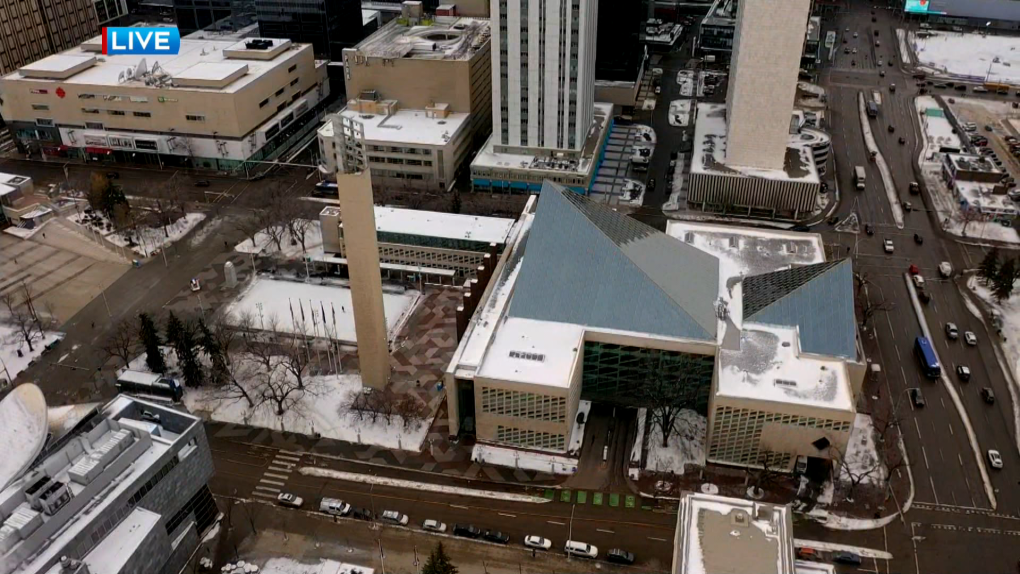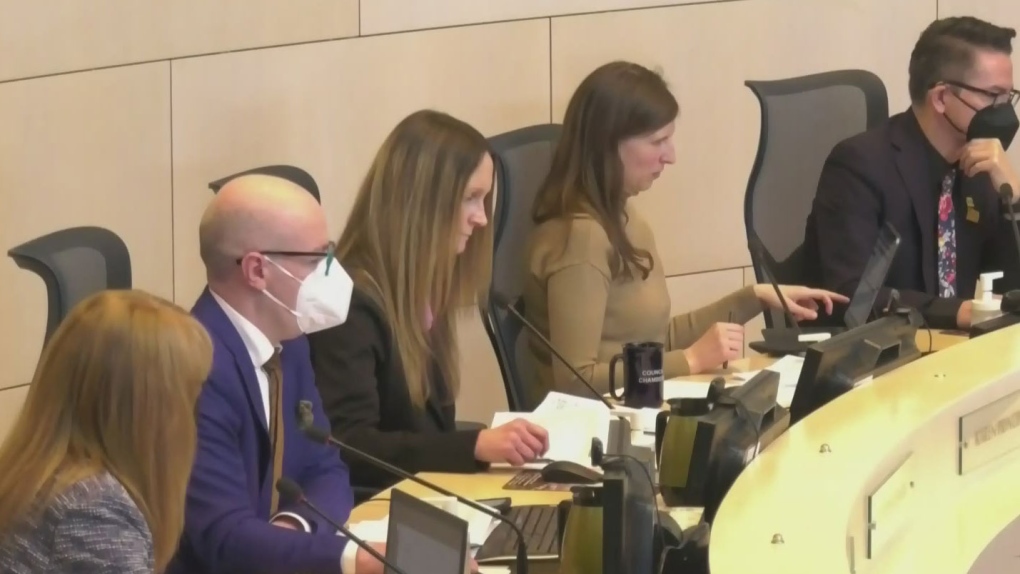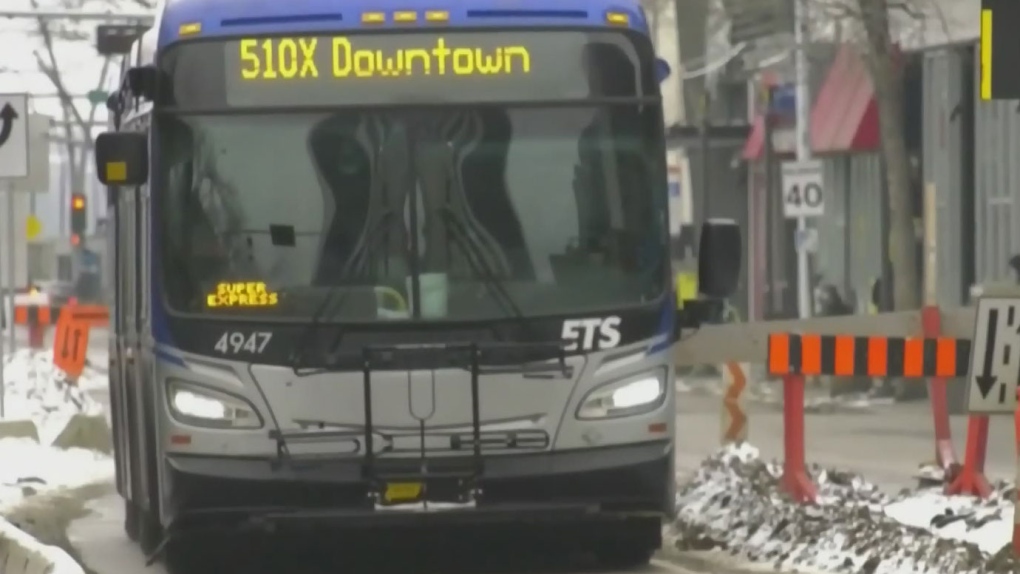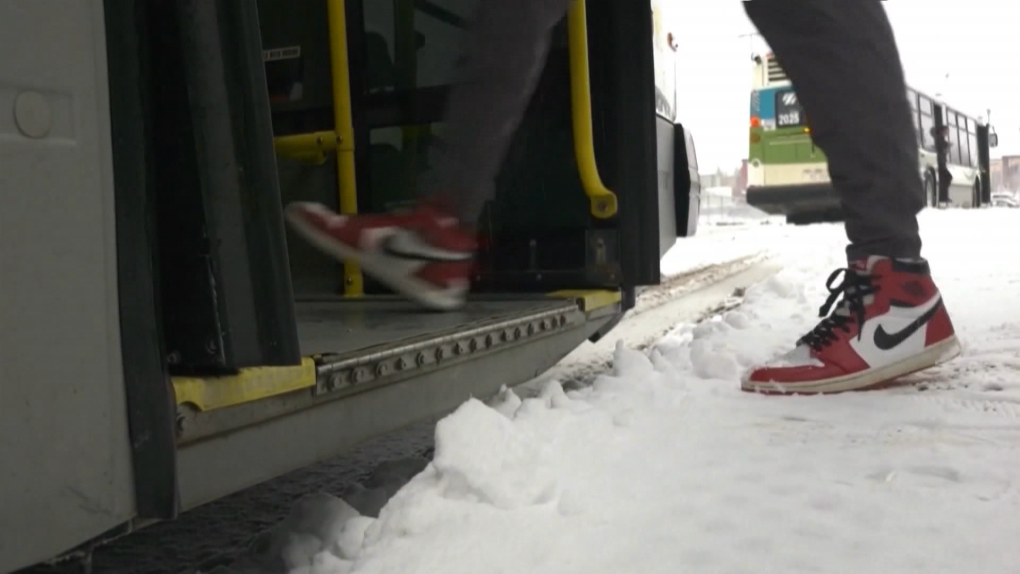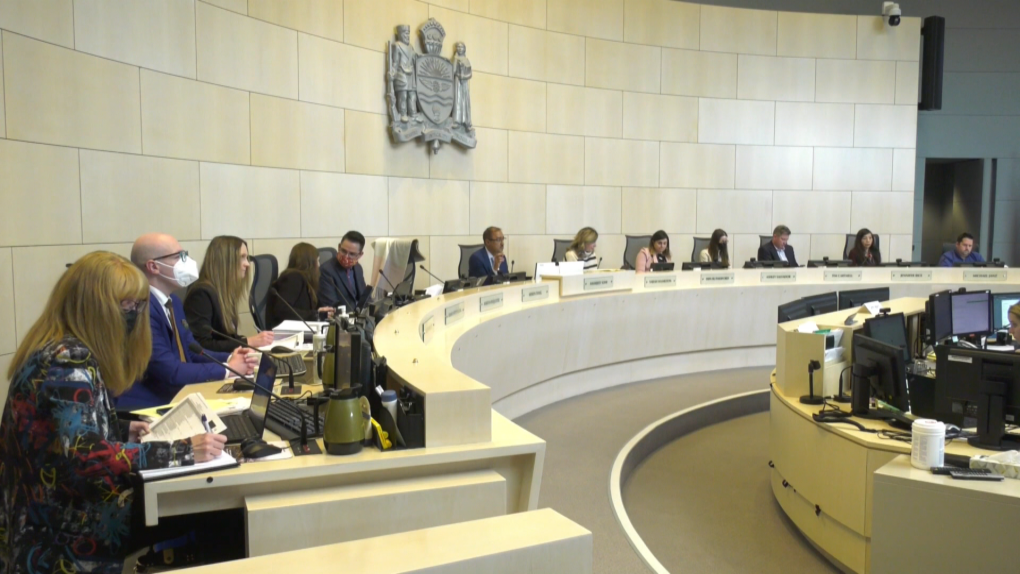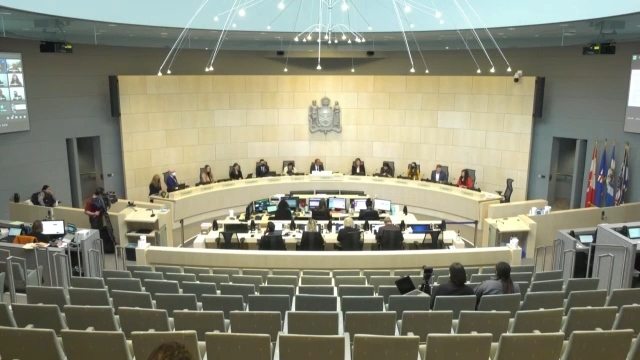
Edmonton passes 5% tax increases; Cartmell calls it 'very dangerous' for affordability
Property taxes in Alberta's capital city are going up by roughly five per cent each year for the next three years, and about four-and-a-half per cent in 2026.
City council voted 9-4 Friday to approve a new capital budget of nearly $8 billion for 2023-26, with councillors Tim Cartmell, Sarah Hamilton, Karen Principe and Jennifer Rice in opposition.
The $3.2-billion operating budget for 2023 passed 8-5, with councillors Andrew Knack, Cartmell, Hamilton, Principe and Rice voting against it.
The tax hike will amount to about $140 extra each year for owners of an average house, which the city pegs at around $400,000.
"My focus during this budget has been affordability, not austerity," Mayor Amarjeet Sohi said.
"I understand that times are tough for many of you. This is why we are undertaking a comprehensive review to reduce costs, realign budget on priorities that matter to you."
Cartmell voted against both budgets out of concern taxpayers can't afford the increases on top of rising housing costs.
"I think [the actual cost to homeowners] starts at five percent. I don't think it ends at five percent, for a lot of people. And a lot of people are on fixed incomes. That's year over year. When that happens four years in a row, people are in very dangerous straits. This is untenable and I cannot support that," Cartmell said.
He was also upset about council voting to pull out of a regional transit commission and said "trust has been lost" by Edmonton when it comes to other regional partners.
"What we're talking about on regional transit is a very dangerous game. We have talked about how we sorta, kinda have a regional transit, we don't. And the minute we stop talking about that is the minute we can start building some kind of a regional transit system," Cartmell said.
He's concerned about Edmonton not being able to afford potential cost overruns on big projects like the west LRT and wasn't pleased that council invested $100 million to build new cycling infrastructure.
"We didn't leave ourselves any wiggle room. Our credit card is tapped and we tapped it to build bikes," he said.
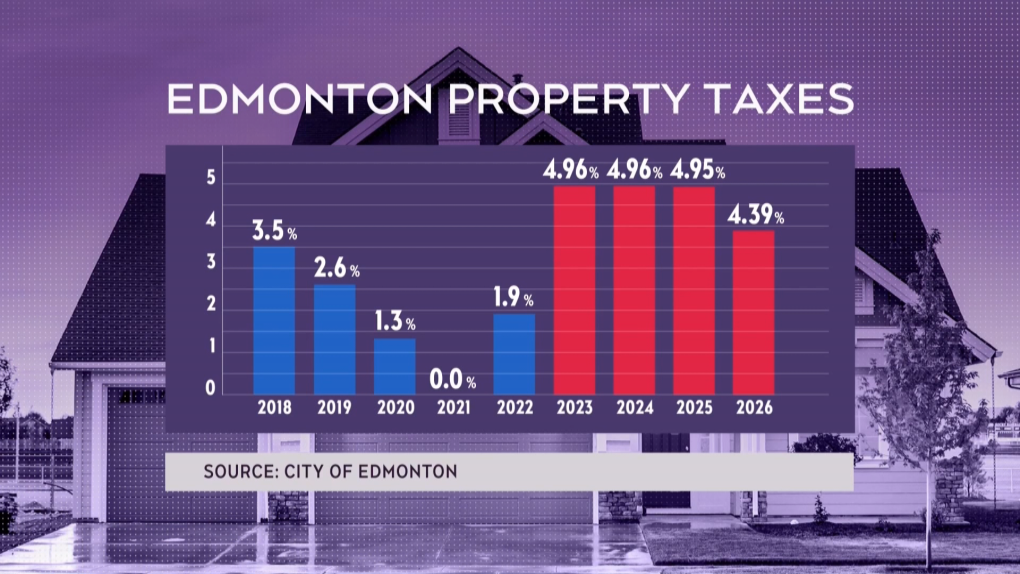
Hamilton said the transit commission decision marks the "the death of regionalism" and that Edmonton will now work in "isolation" from nearby communities, something Sohi rejected.
"I honestly can't remember a budget that had that many people vote no to it," Hamilton told reporters.
"The fact that someone like Andrew Knack, he's not a 'no' guy, he's a 'yes, and' guy saying, 'I can't support this for a number of reasons' to me will probably also raise a lot of attention for Edmontonians."
Knack was upset that more wasn't invested in transit and that a regional transit commission model was not supported. He also said the city isn't spending enough to properly clear snow.
"Roadways and active pathways have grown in inventory without a meaningful change to the budget and I really struggle because I know there are 25 per cent of people who don't drive in this city and I still don't think it's safe enough to navigate in the winter," an emotional Knack said.
Coun. Erin Rutherford agreed with Knack on that, but said there's still a lot of good in the budget.
"I wish that there was more in snow removal, too. I wish that the [grass] trim cycles were increased. I wish that we were able to do more for our unhoused folks. But there's also places that I'm really proud we stood up when we could have said no, easily, in a really tight budget," she said before the vote.
Afterwards, Rutherford called out her colleagues who voted 'no.'
"Absolutely frustrating. Now they're gonna get emails from constituents saying that they're mad about the tax increase and they can say 'well, we voted no' when throughout this entire process they have voted, 'yes, yes, yes' to increases," she said.
City administration initially proposed a tax hike of roughly four percent, but some councillors felt they needed to add to that to get some pressing things done.
Coun. Aaron Paquette said a tax increase was inevitable after "three years of deep, deep cuts" to planned increases, because of the pandemic.
"Continuing to maintain artificially low tax rates is a recipe for service decline, poor maintenance and frustration," Coun. Ashley Salvador agreed.
"I'm really excited about investments in housing and climate change and transit. And there's more that we can do but those are extremely solid starts," Coun. Anne Stevenson.
"We also got some practical things done, like Coliseum, that are not glamorous but have to be done."
With files from CTV News Edmonton's Jeremy Thompson
Must Watch
Top Videos
CTVNews.ca Top Stories

Canada could impose tariffs on U.S. steel, orange juice in response to Trump threat
Canadian officials are narrowing a list of American products to target in the event the federal government must respond to U.S. tariffs on Canadian goods, CTV News has confirmed.
Convicted Jan. 6 rioter arrested as fugitive in Whistler, B.C.
An American citizen convicted of participating in the Jan. 6, 2021, riot on Capitol Hill who said he was seeking asylum in Canada has been arrested as a "fugitive from U.S. justice," according to authorities.
5 hours ago
Can the U.S. really make Canada the 51st state?
Talk of Canada becoming the 51st American state has raised an existential question on this side of the border: Could it be done? Could the maple leaf make way to the stars and stripes? According to several experts, it may be possible, but not painless.
L.A. wildfires continue to devastate area, Canada prepared to offer expertise
A series of wildfires are searing through the Los Angeles area, forcing many to evacuate their homes. Here's everything that happened throughout Jan. 8.
'True when I said it, true today': former Canadian PM Harper pushes back against Trump on social media
Former Canadian Prime Minister Stephen Harper doesn’t find president-elect Donald Trump’s jibes about Canada becoming the 51st U.S. state very amusing.
4 hours ago
Ontario Premier Doug Ford says he is 'OK' after OPP vehicle he was in was 'sideswiped' in Highway 401 collision
Ontario Premier Doug Ford was uninjured after an OPP vehicle he was travelling in was involved in a collision on Highway 401 earlier today.
At least 60 University of Guelph students sick as 'cluster of illness' hits residence
The University of Guelph is dealing with what they are calling a ‘cluster of illness’ among students living in residence.
Energy minister 'committed' to consumer carbon tax as he considers Liberal leadership
Energy and Natural Resources Minister Jonathan Wilkinson says he would be 'committed' to the consumer carbon tax should he become Liberal leader and prime minister, despite the policy’s unpopularity.
New ranking suggests Canada passport among 'top 5 losers' in the world
A new global ranking may raise doubts about Canada's reputation of being open to other countries.


